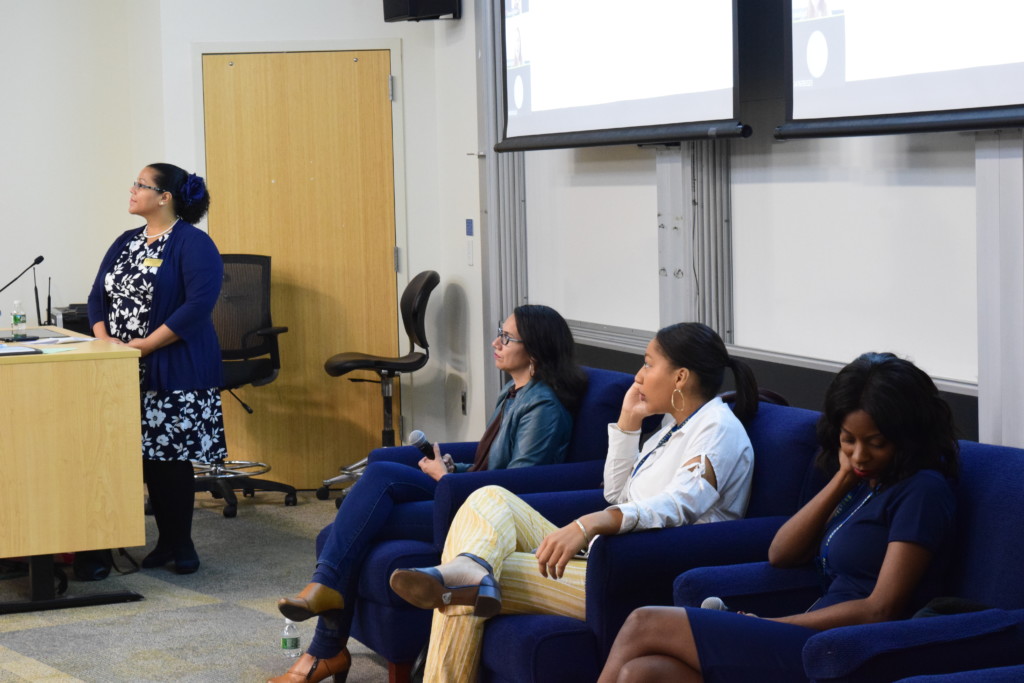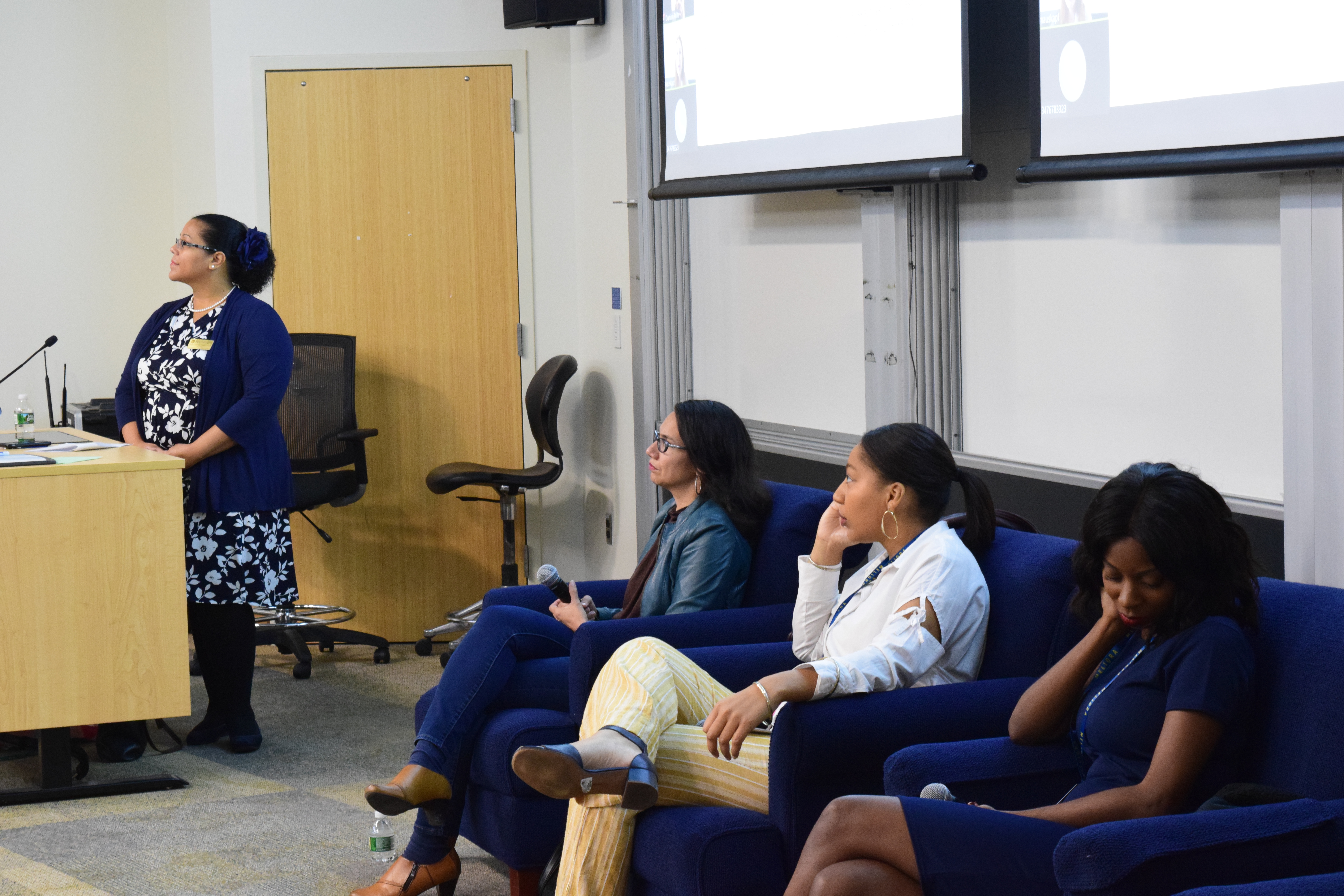On Oct. 5, during Meliora Weekend, alumni came to the Sloan Auditorium for a panel discussion on “Campus Activism as a Catalyst for Positive Social Change.”
The alumni — Amber-Danielle Baldie ‘15, Anansa Benbow ‘15, Elizabeth Pena, Jennifer Mauskapf ‘00, Damion Polite ‘01, and Ann Marie Benitez ‘01 — were all involved in minority student outreach groups during their time at the University.
Douglass Leadership House (DLH), one of these student groups, has been struggling against administration with many issues. These issues have provided opportunities for different events, such as the 1999 sit-in where 200 different students from DLH, SALSA, and other underrepresented minority clubs hosted a sit-in to petition that more minority students to come to the University.
The alumni who stood with DLH during their time at UR feel it is most important to remain wary of discrepancies from administration.
“It’s hard to hear that these problems still exist,” Benitez said. Benitez was affiliated with DLH during her time at UR and reflected on the problems she and fellow students of color faced trying to bring her group to prominence on campus.
Many other speakers were frustrated with how the administration dealt with their organization and felt marginalized, Pena said. Pena felt that the best method to get recognized by the administration is to keep discussing issues with the other minority groups, and become more prominent on campus.
In order to be more proactive on campus, Benbow recommended that students seek new knowledge and become more versed in history. She said this will help students form arguments on preventing history from repeating itself.
Benbow encouraged students at UR to keep fighting for what they believe in. “Ask yourself,” she said, “am I okay with feeling this way?”



